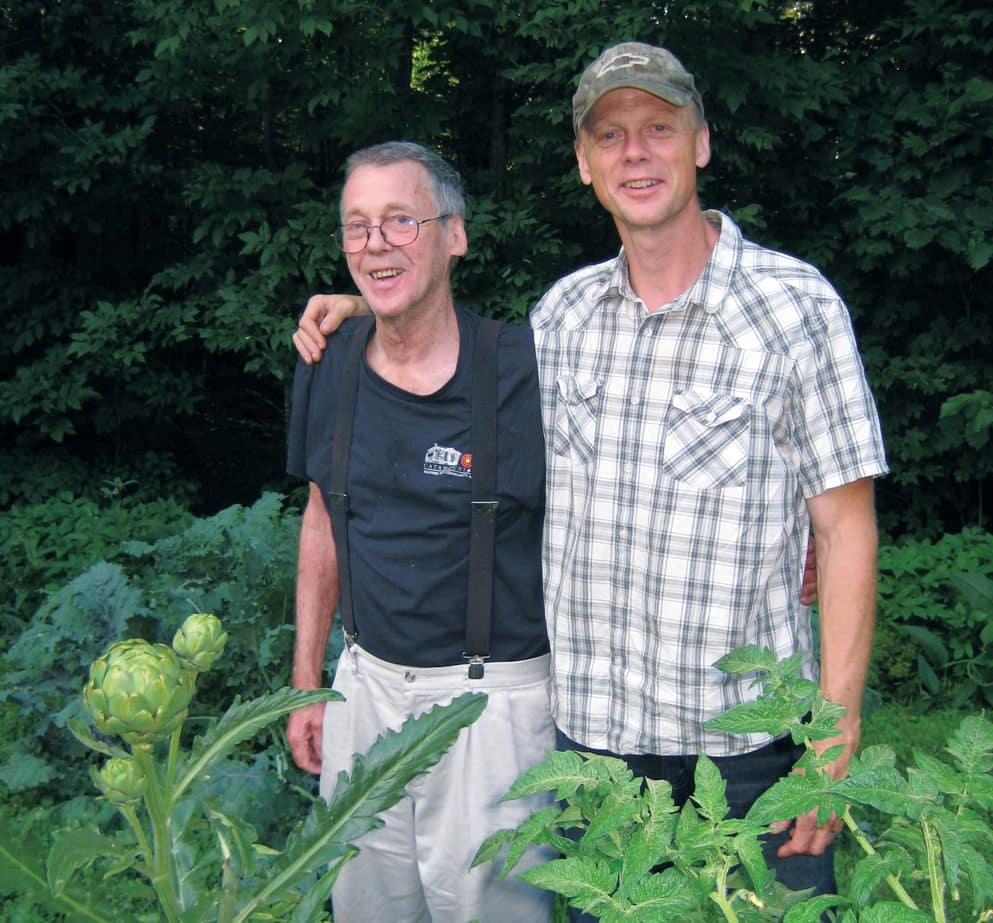
The Poet’s Son
Photo Credit : Rouzes/iStockPhotoWhen I was a young boy and my family still lived in the northern Vermont cabin I’ve previously described here, my father built a small writing shack in the forest just a few hundred feet from the cabin. Like our two-room residence (three rooms if you include the upstairs loft), it had no electricity, plumbing, or even a telephone. From there, in pen and ink or by typewriter, my father plied his trade, which consisted of writing poetry, editing poetry anthologies, and making arrangements to teach workshops at various schools and universities around the country.
I’m pretty sure it was the last one that provided the bulk of our family’s meager income, though perhaps there were poetry riches I was never privy to. But I rather doubt it. As Guy Clark wrote in his song “Cold Dog Soup”:
Ain’t no money in poetry That’s what sets the poet free I’ve had all the freedom I can stand
Cold dog soup and rainbow pie Is all it takes to get me by Fool my belly till the day I die Cold dog soup and rainbow pie
Coupled with the money that my mother brought in by milking cows, my father’s teaching gigs offered bounties greater than cold dog soup and rainbow pie, but not by much. Still, we got by, in no small part due to my parents’ well-honed ethos of thrift and high threshold for deprivation.

Photo Credit : Janet Hewitt
As I’ve written before, my parents eventually grew weary of their self-inflicted poverty. They’d had all the freedom they could stand, and we moved from the cabin to be nearer to the full-time job that my father had taken in Montpelier. But although he was now gainfully employed in a legitimate, 40-hour-per-week desk job that looked suspiciously as if it might become something akin to a career, my father never stopped writing. He wrote poem after poem, many of which found their way into published collections. He sold books at readings and teaching engagements, and always carried a well-stocked box in the trunk of his car so he’d never miss a sale.
As far as I know, at 76 years of age, he still does this. I know he still writes every day. I know that his work is informed by his life in Vermont, by his love for gardening and piles of firewood and for the people in his life. For writing itself.
It’s not just poetry. My father has continued to teach writing many years after his official retirement. He teaches all ages, from elementary school students to elders at assisted-care facilities. He’s a huge fan of slam poetry, which turns poetry recitation into a trial by one’s peers; he loves nothing more than hosting events in which poets recite their work, and then audience members score the performance with brutal honesty on a scale of 1 to 10.
He writes plays and helps produce and direct them; conveniently enough, he’s usually granted himself a starring role, too. He also performs regularly at a small bar and music venue just a mile down the gravel road from my parents’ central Vermont home, reading his poems with some manner of musical accompaniment. I have seen him do this a number of times, and am not always certain it’s been rehearsed.
My father is not a modest man. He is unafraid to be the center of attention. I might even go so far as to say he seeks to be the center of attention. Just about everywhere I go (and I go a fair number of places), people who hear my surname ask if I’m Geof Hewitt’s son. My favorite of these exchanges happened a half dozen or so years ago. My son Rye and I had stopped at our neighbor Melvin’s farm to help unload a wagon full of hay bales. Not long after we arrived, an old Ford pickup pulled into the barnyard and an older couple emerged. Not old, but older. Fifties, I guessed, though it did not look as if they’d led an easy life, and so their age was somewhat hard to figure. The man was barrel-chested and drinking a Mountain Dew. The woman was of modest height and a bit stocky; her defining feature was a prosthetic leg, which was particularly obvious since she was wearing shorts. She was smoking a cigarette.
Melvin introduced us, and immediately I saw the woman’s attention shift, just the slightest sharpening of her features.
“Hewitt?” she said. “Hewitt? Are you related to Geof Hewitt?” Almost an accusation, really.
“He’s my dad,” I said, entirely unsure where this line of inquiry was headed. And frankly a little unsettled by the possibilities.
She broke into a huge grin. “I love that guy,” she said, through a scrim of smoke. “He taught my writing class in prison.”
That was the first time I truly understood the impact of my father’s work. To me, it had always just been what my dad did—a central, constituent part of him, and so obviously something he needed almost as surely as water and oxygen. I’d never really considered what his writing and teaching meant to others.
I guess it should have come as no surprise that I’d end up much the same as my dad, as apples tend not to fall too far from the tree. Often, they fall directly under the tree, though I’d argue that my studied avoidance of poetry provides at least some measure of differentiation. While I’m grateful for whatever capacities I inherited from my father (and my mother, herself a fine writer—my father has always said she’s the better of the two of them), it’s also true that I sometimes feel as if the compulsion to write is a bit of a curse. The solitary and occasionally lonely nature of the craft is part of this curse; often, I want for something more social, some company beyond words on a page, a little camaraderie and shared purpose. And then there’s the incessant “stone-turning,” my term for the way a writer’s mind seems always to be working, always turning over and around, trying to find the least-muddled path between experience, idea, and paper. (I almost wrote “the clear path,” but I’m glad I didn’t, because in my experience, “least-muddled” is about the best one can hope for.)
Over the years, many people have asked what it’s like to be a writer’s son, and I’ve never known how to answer. Because of course I’ve known nothing different; I have no context. My father is the only father I know. Like every parent I know, he’s made his share of mistakes, and like every parent I know, he’s passed along his share of admirable qualities, most of which don’t necessarily have anything to do with writing, even though writing and teaching are the vehicles by which he expresses many of these qualities.
In my middle years, I see more clearly how this is true of us all. I believe that each and every one of us has something of value to share, no matter the circumstances of our lives. And I think that’s a big piece of what I love about this region: The scale of New England still feels so accessible, so inclusive and human. It still provides us so much opportunity to connect with one another, to extend ourselves, and to offer what we have to offer, even if we don’t fully understand or recognize the value in our offerings. I doubt my father knew at the time how profoundly he’d impacted that woman’s life, that years later she’d hear his name and break into a smile.
Not long after meeting her, for no particular reason I can think of, I found myself wondering if she still wrote. Maybe she never wrote another thing in her life, I thought. And then: Maybe that doesn’t really matter. Because perhaps what really matters is that for a certain period of her life, during which she was compelled to live behind locked doors and razor wire, the hourlong writing class that my father taught offered her a temporary means of escape, an opportunity to imagine her circumstances differently. Maybe even a way to imagine herself differently. Which is a pretty amazing gift, if you think about it.


